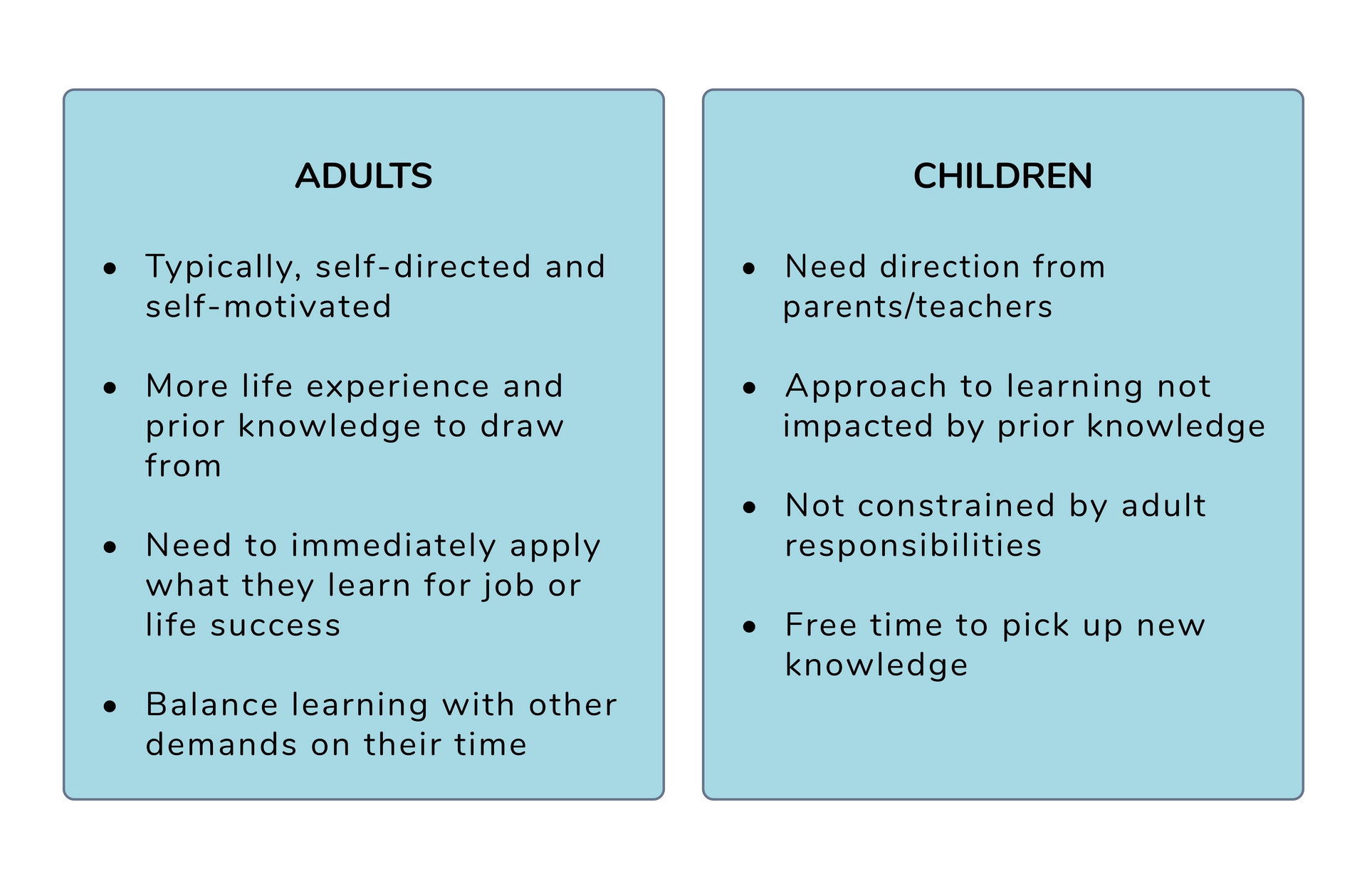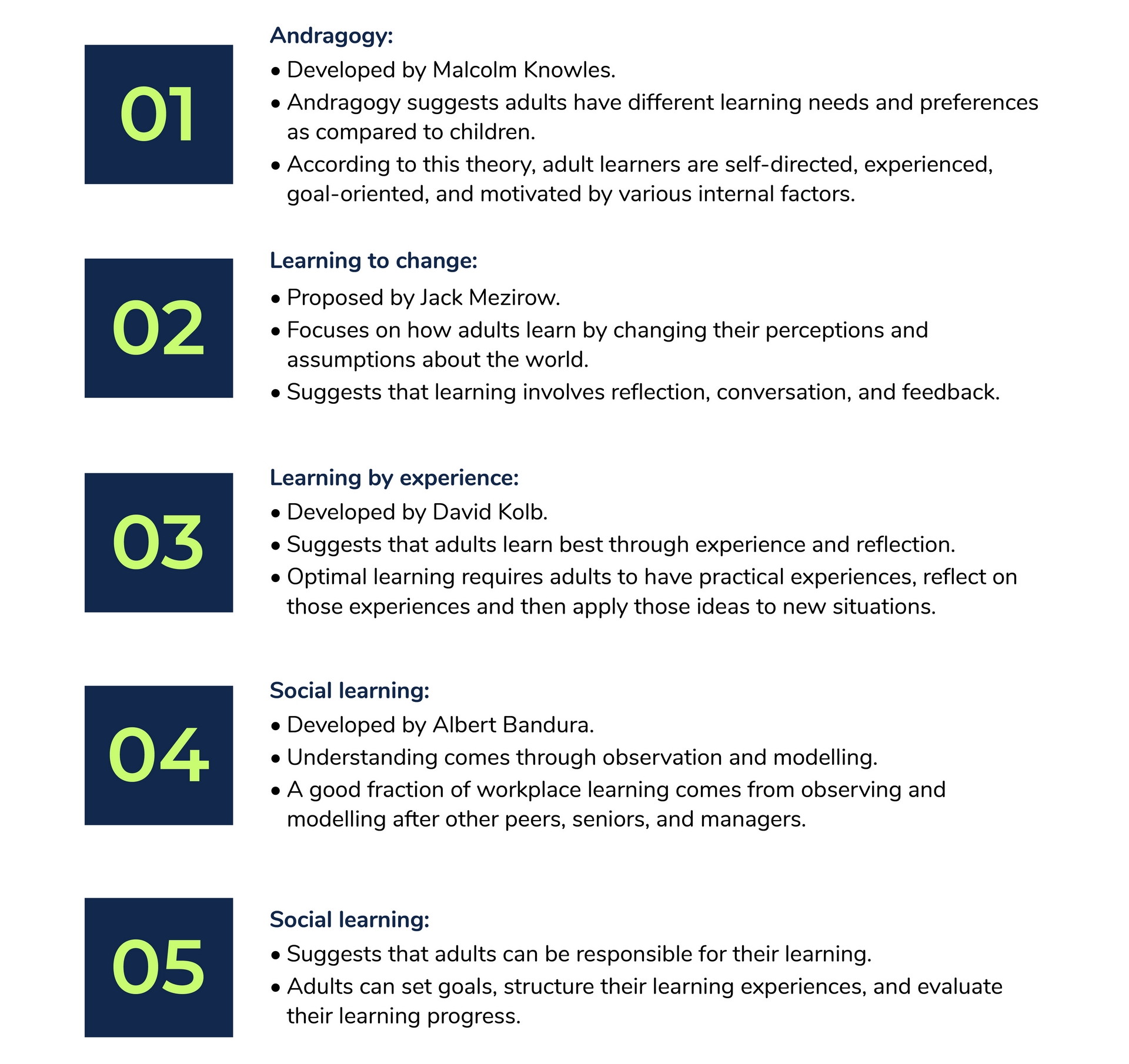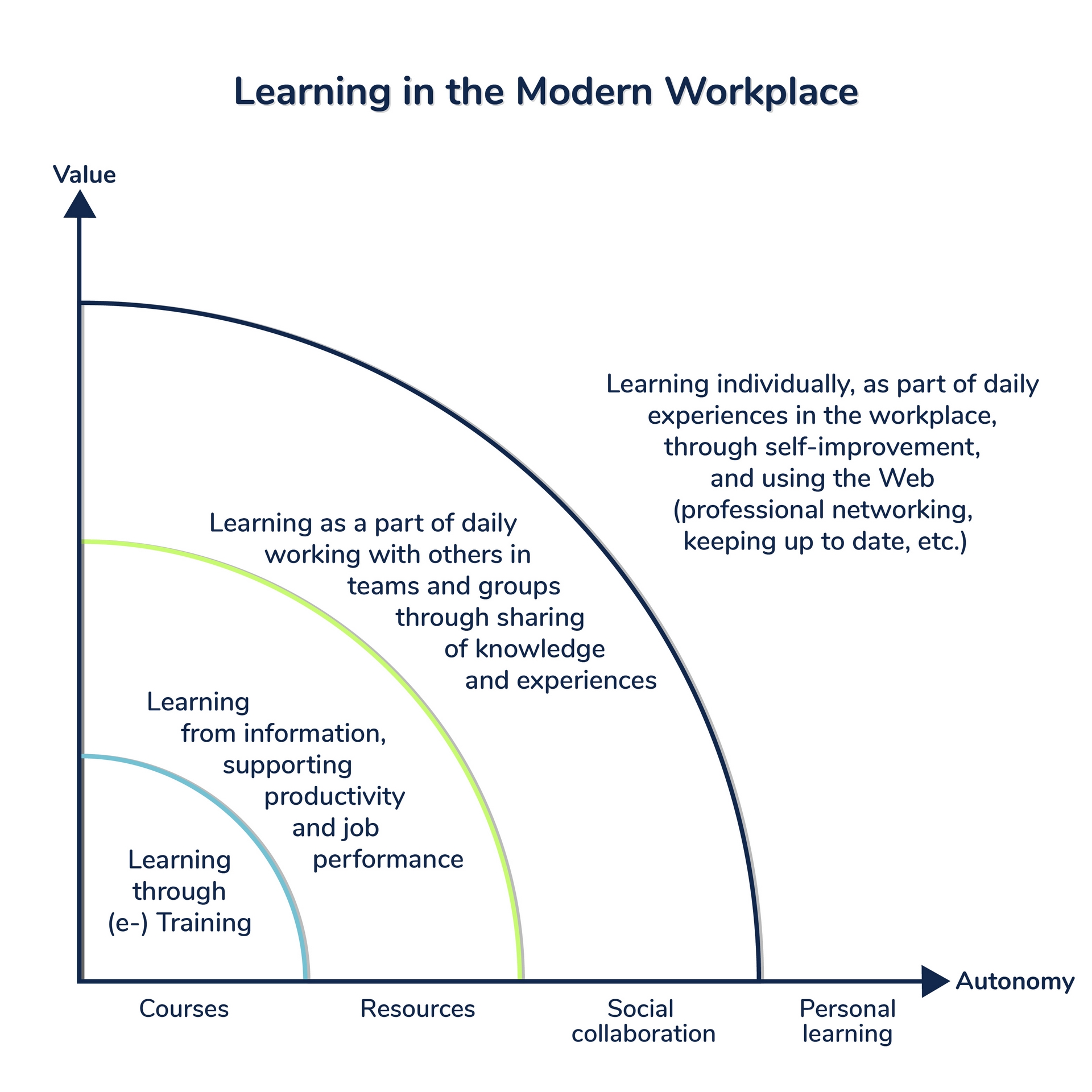What is Adult Learning?
According to a theory of adult learning proposed by Malcolm Knowles, there are specific differences between adult learners and child learners. Drawing from different theories in adult learning, here a few traits of adult learners:
1. Self-Directed: Adult learners are self-directed and responsible for their own learning. They are encouraged to learn and orient their experiences. Adults bring a lot of experience to their learning, and often, they like to build on their existing knowledge and skills.
2. Relevancy-Oriented: Adults want to learn things related to their lives, interests, and careers. They are more likely to learn when they see how it will benefit them.

Source: What is Adult Learning Theory?, learnupon.com
3. Problem-Oriented:
Adults are more likely to be involved in learning when they face problems or learn new ways to solve challenges they need to address.
4. Practice:
Adults want to see practical applications for what they are learning. They want to be able to apply what they have learned in real life.
5. Collaborative Learning: Adult learners have to know how to learn in teams. Most of the projects adult learners handle are done in collaboration. Thus, they must also share their knowledge and expertise with others when involved in a team project.







